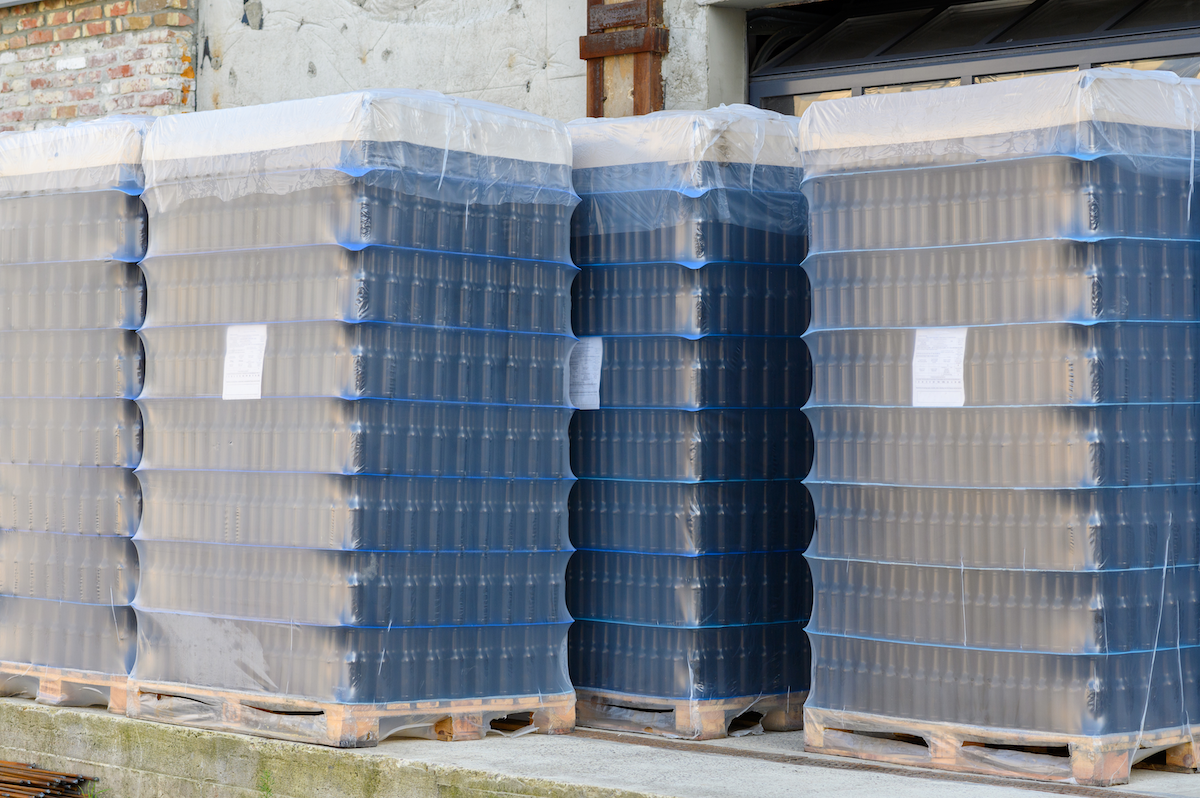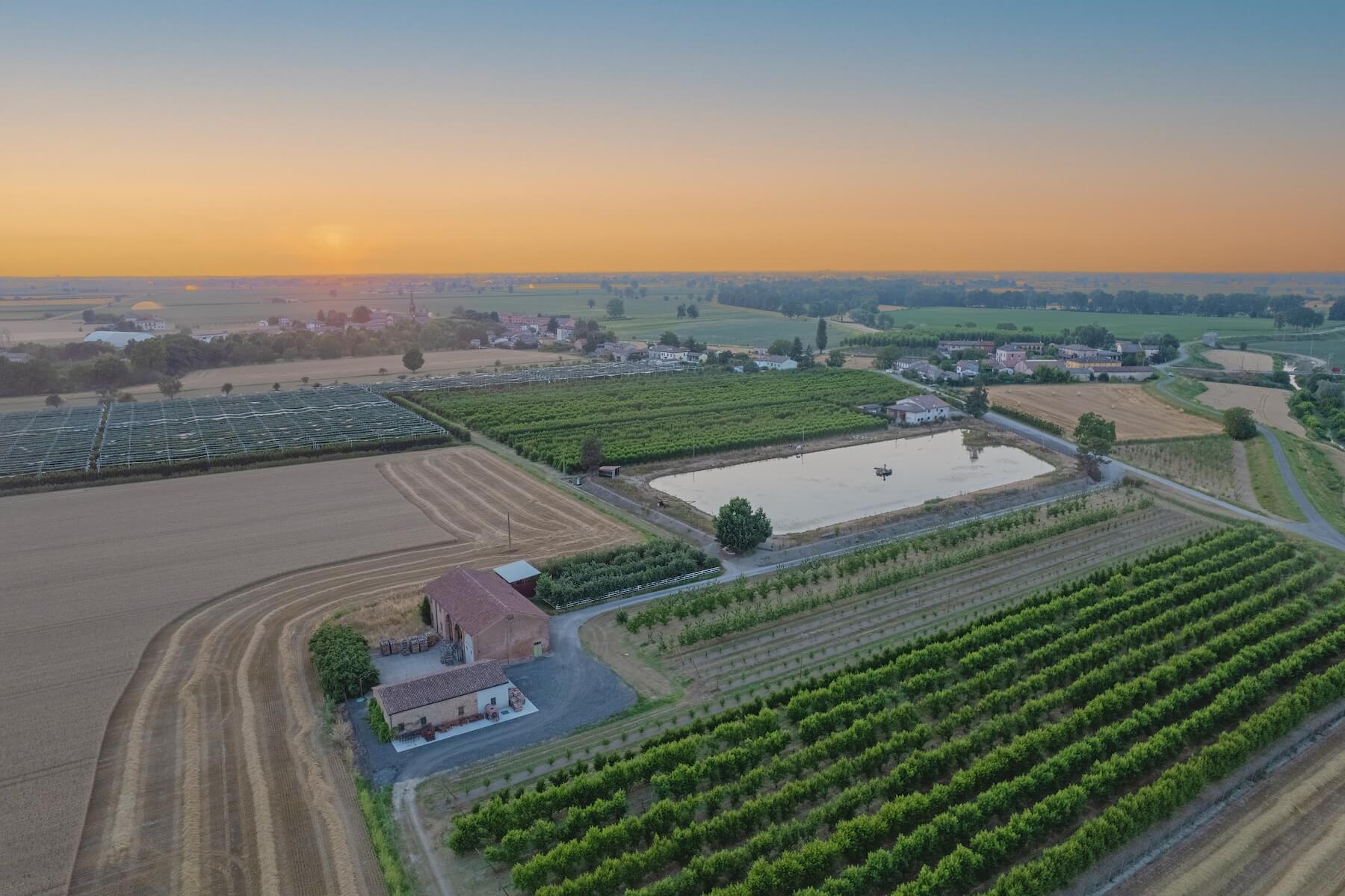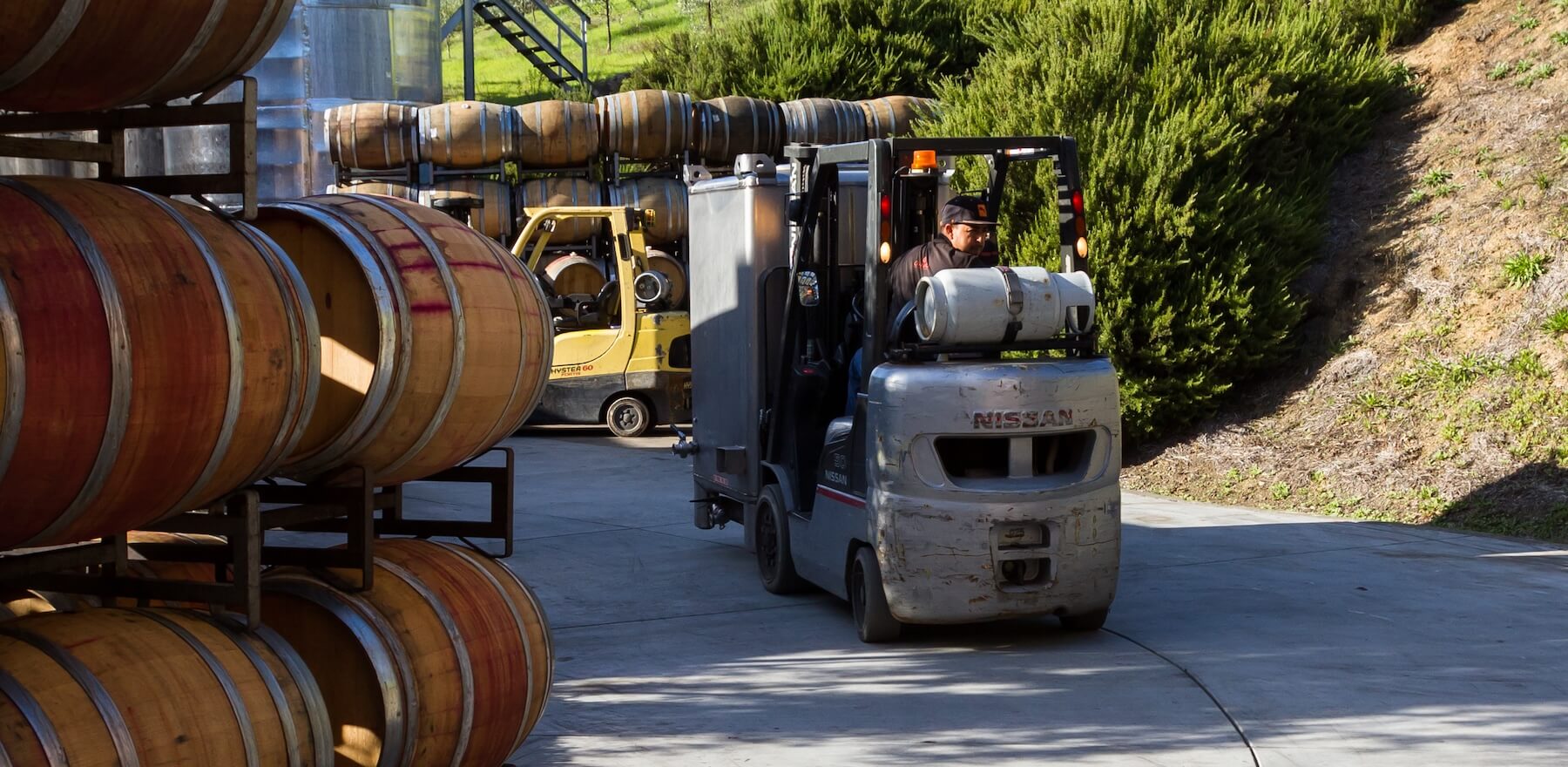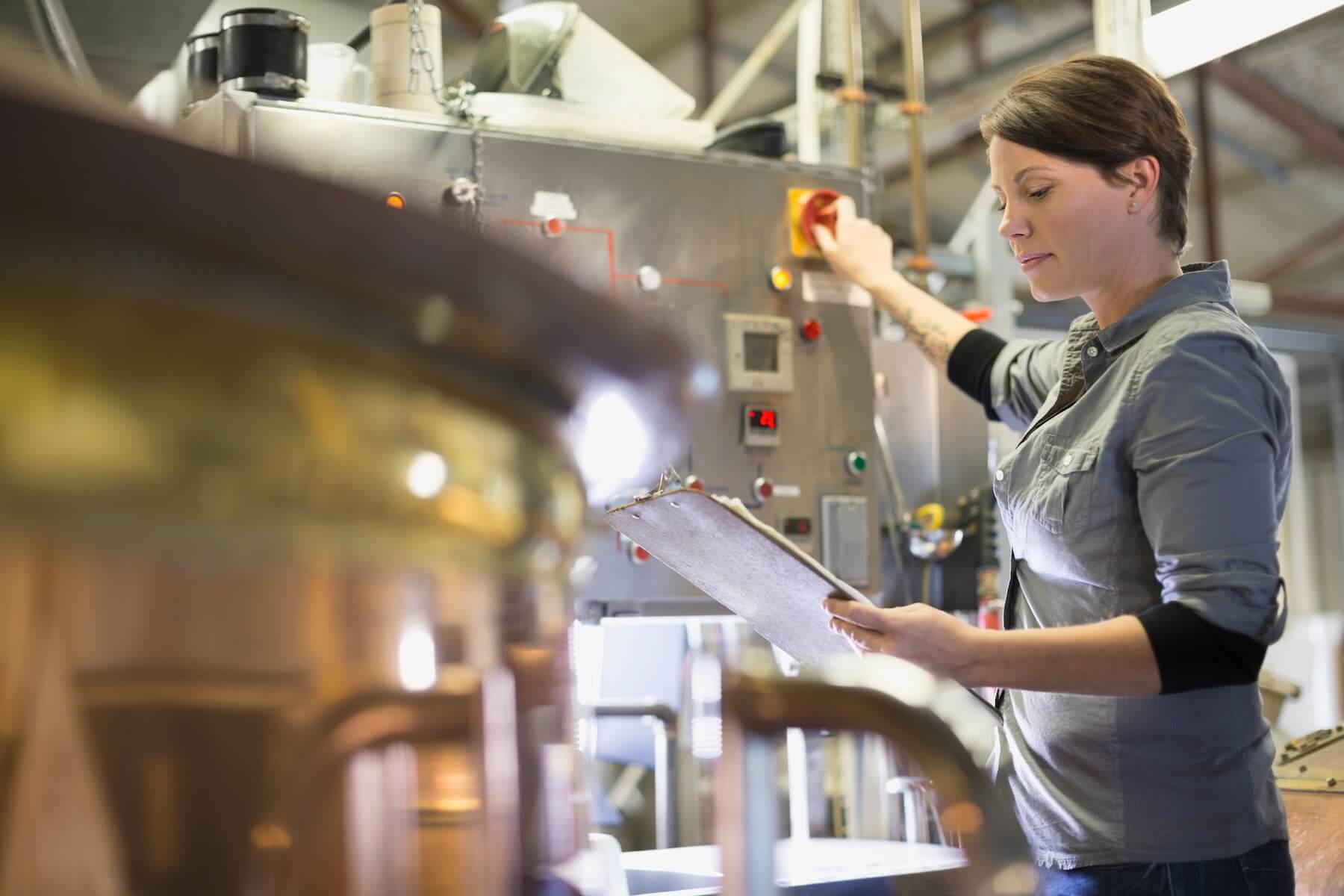As the craft brewing industry continues to change, the importance of having efficient brewery accounting software cannot be understated.
A unified brewery software system can streamline your business and guarantee seamless operations, maximized production and efficient administration. Here are five essential tips if you are new to craft brewery accounting. This advice will help you use your brewery accounting software effectively.
Choose Industry-Specific Solutions
When choosing the best brewery software for your business, it may seem tempting to combine different point systems. However, this can be inefficient and cause issues in the long run.
Instead, opt for an industry-specific solution like Crafted ERP, which has been tailor-made for craft breweries. It also has editions (and capabilities) specific to wine, craft spirits, RTD production and other beverages.
Crafted ERP has been purpose-built by head brewers, distillers and winemakers who know what the industry needs most. This ensures that the software understands and meets the unique needs of the bev-alc industry.
Understanding Industry Complexities
The craft beer industry is unlike any other. Ingredient prices and availability vary, affecting production schedules and product availability. The production process differs from other beverage types, requiring specialized features unique to craft beer.
There have also been significant shifts in consumer tastes and preferences that have significantly affected global beer sales. Industry-specific solutions tackle these issues, helping your brewery stay efficient and adaptable.
Managing the Supply Chain
Craft breweries use specialized ingredients and materials, and managing the supply chain can be challenging. Brewery-specific modules let you track inventory and ingredient sources to ensure you have what you need for production. This helps reduce waste, cut costs and maintain consistent product quality.
Tailored Financial Reporting
Craft brewery accountants know that having immediate access to detailed and relevant financial data is crucial. Generic accounting software might not provide the depth of information breweries need. The best brewery software provides financial reporting tools tailored to the craft beer industry. This includes tracking the cost of goods sold, calculating margins on various beer types, and analyzing seasonal sales trends.

Embrace Automation
Time is essential in the fast-paced brewery industry. Manual data entry and repetitive administrative tasks can significantly drain your resources. Crafted ERP comes equipped with specialized features, like automated, out-of-the-box reports.
Cloud-based software helps eliminate redundant data entry by syncing information across systems, ensuring consistency and accuracy. Additionally, it automates routine administrative tasks such as scheduling, inventory updates and compliance reporting. This automation frees up time for you and your team from day to day to focus on more strategic initiatives. Automation also reduces the likelihood of human error.
By embracing automation, you can optimize workflows, enhance efficiency and maintain a smoother administrative process. This makes it easier to manage resources and scale operations. That way, you can keep up with market demands and seize growth opportunities.
Automating Inventory Management
Inventory management is a prime example of how automation can improve your craft beer operations. Keeping track of raw materials like hops, malt, yeast and packaging is essential. Brewery-specific software automates this process by tracking inventory levels in real time.
When the amount of a specific item gets too low, the system can automatically create purchase orders. Items can then be restocked, ensuring you never run out of essential materials to maintain production.
Streamlining Financial Transactions
In a brewery accounting department, automation can be a game-changer. Brewery accounting software automatically generates invoices once an order is placed and tracks payments to streamline financial transactions. The system then sends the invoice to the customer and updates the ledger. This helps save time and ensure you have accurate financial records.
Automated Reporting
Generating reports manually is a time-consuming and tedious task. By using brewery accounting software with automation capabilities, you can streamline these accounting processes significantly. The software can automatically generate various reports, including sales, excise tax, production and regulatory compliance.
You can even set the system to generate specific reports at predetermined times and days. This ensures you always have the latest data when you need it.
Automation nixes the manual labor of gathering data and creating reports. It allows the focus to shift from data management to more strategic aspects of the business. Automated reporting also ensures accuracy and consistency in the data, which will help you make more informed business decisions.
Automated reporting enhances efficiency and helps identify trends, forecast future needs, and align your strategies with market demands. Ultimately, this can help drive growth and long-term success.
Enhancing Communication Through Automation
Brewery accounting software also helps you better communicate with your team. You can set up notifications to keep team members informed about important details. This includes inventory levels, production status, and shipment delays. Automated notifications enhance collaboration and efficiency and contribute to the overall success of the brewery.
Optimize Your Production
Optimizing production is essential to ensure that your craft beverage business can produce more in less time, better forecast order quantities and gain improved supply chain visibility.
The best brewery software provides helpful tools to improve efficiency in several areas. They assist with sales, inventory, warehouse management, accounting, procurement, logistics and manufacturing. Make sure to utilize these tools to optimize production and increase overall profit.
Gain Complete Visibility into Data
Data is the backbone of any business, and it’s important to have a complete overview of your operations for smart decision-making. End-to-end, industry-specific solutions allow you to dissolve operational silos and gain complete visibility into your data.
The best brewery software, like Crafted ERP, provides enhanced data insights and analytics to empower you to better serve your customers and, ultimately, make better beverages.
The Drawbacks of Limited Data Visibility: A Cautionary Tale
Imagine this scenario: A large regional brewery is rapidly expanding but clinging to generic accounting software. The brewery’s recent growth consumed so much of its resources that it didn’t even realize it had outgrown its system.
As the month-end approached, the accounting team had trouble collecting detailed, real-time data from all production facilities and taprooms. In a team meeting, the new CFO pointed out a significant problem: slow decision-making was holding back their growth and innovation. He suggested the company invest in brewery ERP software.
The problem became clear when an error was spotted in the sales report from one of the taprooms. The team double-counted sales and this mistake threw the monthly income statement into chaos and completely derailed the budget for the upcoming month.
The existing process forced the accounting team to export and juggle multiple spreadsheets, viewing data across different platforms. It was a time-consuming and error-prone task.
The lack of clear visibility across locations and departments led to poor coordination and inaccurate reporting. This resulted in frustrated department leaders who couldn’t procure the extra supplies they needed and doubled the workload for the accounting team tasked with rectifying the errors.
This debacle underscores the value of implementing an ERP solution, as recommended by the CFO. An ERP system would enable complete visibility of all data in real time, greatly enhancing decision-making and operational efficiency.
Leveraging Crafted ERP for Enhanced Data Visibility
Crafted ERP consolidates data from various departments, providing teams with the information they need on all brewery KPIs. It allows employees, accountants and the brewery bookkeeper, regardless of location, to access the same data. This ensures everyone works from a single source of truth.
Crafted’s integrated modules for breweries deepen the ability to analyze data. Brewery accountants gain a comprehensive view to examine sales trends, customer preferences, production costs and other critical metrics. This is vital for making informed, data-driven decisions that can significantly advance your brewery’s success.
Scale with Confidence
As your brewery grows, it’s essential your brewery software grows with it. Opt for a scalable platform capable of managing complexities like multi-license, multi-currency and multi-location operations. Additional features and capabilities can be added over time to match your expansion’s pace. Whether you’re increasing distribution or adding new products, your software should be ready to support your goals.
As a brewery accountant, it’s essential to plan for growth actively. Begin by fully understanding what your software can do and how it matches your long-term business goals. This proactive approach lets you make smart choices that keep your brewery running smoothly. This sets you up for continued success and new opportunities.
Brewing Success
Having complete visibility into your data is not just a luxury; it’s a necessity. In an industry as dynamic as craft brewing, being able to anticipate and respond to changes is crucial.
Robust data integration and analytics tools put important information at your fingertips. This leads to better coordination, smarter decision-making, and a more efficient operation overall. Don’t let poor data visibility slow down your brewery’s success.
Selecting the right brewery accounting software is crucial for the success of your beverage business. Choosing an end-to-end, industry-specific solution built by industry experts for people like you will set you on a path to success. By following these tips, accounting professionals can maximize brewery ERP benefits and elevate their business to new heights.
Contact our team of craft beer specialists who can evaluate your business needs and recommend a software plan that can scale with you.





